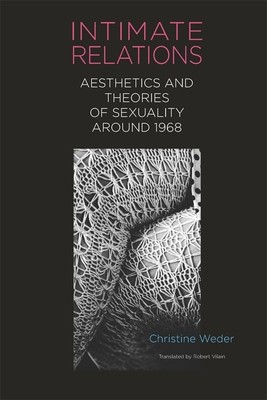
- We will send in 10–14 business days.
- Author: Christine Weder
- Publisher: Camden House (NY)
- ISBN-10: 1640140875
- ISBN-13: 9781640140875
- Format: 15.2 x 22.9 x 2.1 cm, kieti viršeliai
- Language: English
- SAVE -10% with code: EXTRA
Reviews
Description
A fresh historical perspective on the transformative relationship between sexuality and the arts around 1968
In the late 1960s and early '70s, sexuality and the arts entered into a remarkably intimate and mutually beneficial relationship: on one hand, scientific theories of sexuality and their pop-psychological counterparts incorporated lengthy reflections on art movements and literary texts, since artistic media were understood as crucial to the project of inventing radically new modes of human living and loving. On the other hand, the aesthetic ambitions that informed new conceptions of sexuality had their mirror image in the varying forms of sexual obsession that characterized contemporary aesthetic theories. Approaches as diverse as those of Theodor W. Adorno, Roland Barthes, Susan Sontag, Leslie A. Fiedler, Peter Gorsen, and Herbert and Ludwig Marcuse all contributed to a dramatic eroticization of the arts. Christine Weder's interdisciplinary study explores this largely neglected relationship, providing a dual insight into an era of profound transformation: she demonstrates how and why the engagement with art and literature was essential to the programmatic theories of the new Eros. At the same time, she offers a fresh historical perspective on aesthetics around 1968. Whereas aesthetic developments in the late sixties have conventionally been conceived in terms of politicization, Weder demonstrates that the sexualization of the arts was no less profound, and in doing so contributes to a fundamental reframing of this tumultuous period.EXTRA 10 % discount with code: EXTRA
The promotion ends in 23d.18:57:34
The discount code is valid when purchasing from 10 €. Discounts do not stack.
- Author: Christine Weder
- Publisher: Camden House (NY)
- ISBN-10: 1640140875
- ISBN-13: 9781640140875
- Format: 15.2 x 22.9 x 2.1 cm, kieti viršeliai
- Language: English English
A fresh historical perspective on the transformative relationship between sexuality and the arts around 1968
In the late 1960s and early '70s, sexuality and the arts entered into a remarkably intimate and mutually beneficial relationship: on one hand, scientific theories of sexuality and their pop-psychological counterparts incorporated lengthy reflections on art movements and literary texts, since artistic media were understood as crucial to the project of inventing radically new modes of human living and loving. On the other hand, the aesthetic ambitions that informed new conceptions of sexuality had their mirror image in the varying forms of sexual obsession that characterized contemporary aesthetic theories. Approaches as diverse as those of Theodor W. Adorno, Roland Barthes, Susan Sontag, Leslie A. Fiedler, Peter Gorsen, and Herbert and Ludwig Marcuse all contributed to a dramatic eroticization of the arts. Christine Weder's interdisciplinary study explores this largely neglected relationship, providing a dual insight into an era of profound transformation: she demonstrates how and why the engagement with art and literature was essential to the programmatic theories of the new Eros. At the same time, she offers a fresh historical perspective on aesthetics around 1968. Whereas aesthetic developments in the late sixties have conventionally been conceived in terms of politicization, Weder demonstrates that the sexualization of the arts was no less profound, and in doing so contributes to a fundamental reframing of this tumultuous period.

Reviews